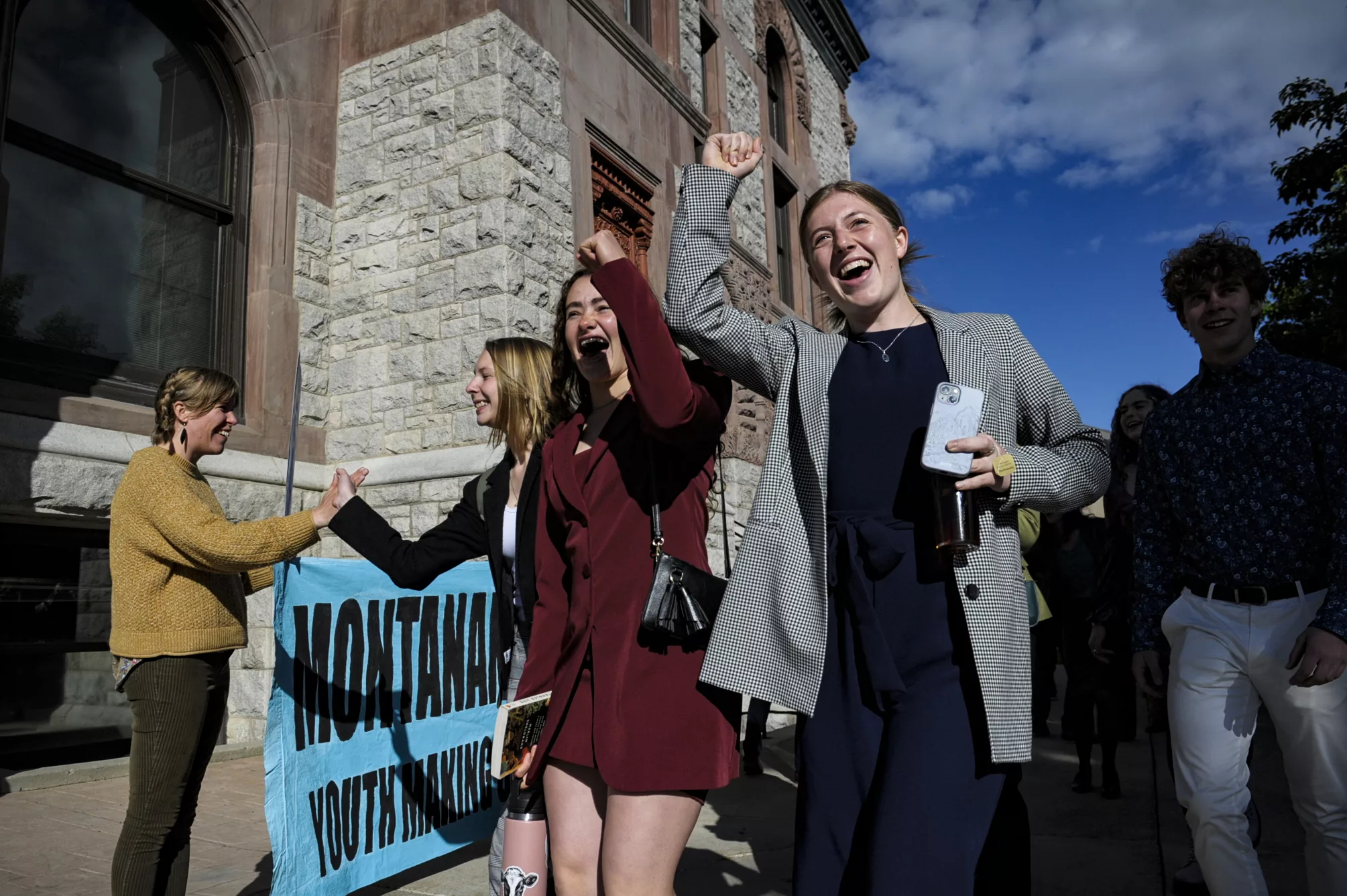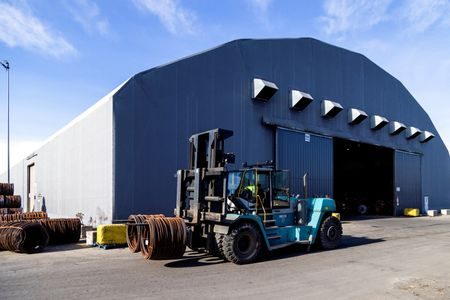HELENA, Mont. (AP) — Republican officials in Montana will ask the state Supreme Court on Wednesday to overturn a landmark climate ruling that says regulators must consider global warming emissions when approving oil, gas and coal projects.
Last year’s lower court ruling — following an unprecedented trial in a lawsuit brought by young environmentalists — was considered a breakthrough in attempts to use courts to leverage policies addressing climate change.
Yet for it to set a lasting legal precedent, it must be upheld by the state’s high court. That could nudge fossil fuel-friendly Montana to adopt policies more protective to the environment and also influence future climate change cases in other states such as Massachusetts, Pennsylvania and New York, which like Montana have state constitutional protections for the environment.
A reversal by the high court would add to a long list of defeats for attorneys representing youths in climate cases.
“The bottom line is whatever the state Supreme Court decides, it’s more likely to be important than the trial court ruling,” said Syracuse University professor David Driesen, an expert on environmental law.
Officials in Hawaii who faced a similar lawsuit from young environmentalists recently agreed to a settlement that includes an ambitious requirement to decarbonize the state’s transportation system over the next 21 years. And in April, Europe’s highest human rights court ruled that countries must better protect their people from the consequences of climate change, siding with a group of older Swiss women against their government in a ruling with potential implications across the continent.
Those cases and the Montana lawsuit have resulted in a small number of rulings establishing a government duty to protect citizens from climate change. Driesen said the effects of the litigation on energy policies have been largely indirect, but as the rulings accumulate, it could increase political pressure on energy companies to invest in cleaner technologies.
The Montana ruling, which has yielded little practical impact to date, has been criticized by Republicans who control the state’s legislative and executive branches.
“The District Court gave the plaintiffs their show trial last June, but it is now time for the State Supreme Court to do its job and overturn the flawed decision that followed,” said Chase Scheuer, press secretary for state Attorney General Austin Knudsen. Republican Gov. Greg Gianforte also pressed for a reversal.
Attorneys for the state argue that the volume of greenhouse gasses released from Montana fossil fuel projects is insignificant compared with global emissions and reducing them would have no meaningful effect on the climate.
The young plaintiffs in the case testified at trial that their lives have been profoundly affected by climate change: that worsening wildfires foul the air they breathe, while decreased snowpack and drought deplete rivers that sustain farming, fish, wildlife and recreation.
Environmental activists have cited the district court ruling in lawsuits challenging permits for a natural gas power plant, an oil refinery, a pipeline and a coal mine, court records show.
However, those lawsuits haven’t yet been served on state officials as the activists wait for the high court to weigh in, said Derf Johnson of the Montana Environmental Information Center, a plaintiff in the cases.
In March, regulators started looking at climate-changing greenhouse gas emissions in some cases. But environmentalists complain that the reviews are merely cursory and don’t account for the widespread damage being done by climate change.
“The state needs to start evaluating the individual projects. It’s where the rubber hits the road,” Johnson said.
District Court Judge Kathy Seeley said in her August 2023 ruling that it would be up to the Legislature to determine how to bring policies into compliance, dimming the chances for prompt changes in what is a fossil fuel-friendly state.
Numerous individuals and organizations filed briefs in support of the plaintiffs ahead of Wednesday’s oral arguments, including Native American tribes, health experts, outdoor recreation businesses and athletes such as acclaimed mountaineer Conrad Anker.
Republican legislative leaders, oil and gas interests, natural resource developers, the Montana Chamber of Commerce and the state’s largest utility, NorthWestern Energy, are supporting the state. NorthWestern is building a gas-fired power plant along the Yellowstone River near Billings that has figured prominently in the dispute over greenhouse gas emissions.
Carbon dioxide, which is released when fossil fuels are burned, traps heat in the atmosphere and is largely responsible for the warming of the climate.
June brought record warm global temperatures for the 13th straight month and also was the 12th straight month that was 1.5 degrees Celsius (2.7 degrees Fahrenheit) warmer than pre-industrial times, according to European climate service Copernicus.
Montana’s Constitution requires agencies to “maintain and improve” a clean environment. A law signed by Gianforte last year said environmental reviews may not consider climate impacts unless the federal government makes carbon dioxide a regulated pollutant.
___
Brown reported from Billings.
Brought to you by www.srnnews.com







